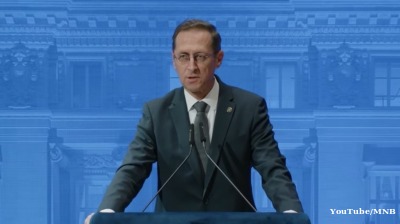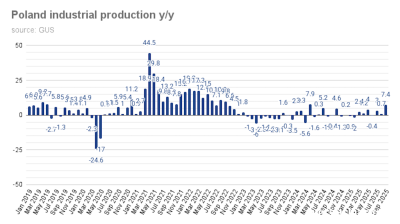The International Monetary Fund (IMF) said on June 27 that Serbia demonstrated resilience during the COVID-19 pandemic, but the war in Ukraine, high inflation and the energy crisis pose new challenges.
Due to the new challenges the IMF lowered the GDP growth for Serbia in 2022 to 3.5% amid high uncertainty following a strong growth of 7.4% a year before. According to the IMF, the growth will be dampened by the impact of high inflation on consumer demand, curtailed trade with Russia, and lower external demand.
This was said in the statement after the IMF board concluded the second review under the Policy Coordination Instrument (PCI) for Serbia, which was approved in June 2021 and aims at supporting the recovery from the pandemic and maintaining macroeconomic stability.
Driven by soaring global food and energy prices, Serbia’s inflation has increased to 10.4% in May 2022, while core inflation remained lower at 6.3%. Specific challenges arose in the energy sector when shortfalls in domestic electricity production coincided with rising global energy prices in the 2021-22 winter, increasing total energy costs by about 2% of GDP, the statement said.
The IMF praised the Serbian authorities for acting swiftly to preserve financial stability, help companies navigate the international sanctions regime and supply chain disruptions, mitigate the pass-through of high global commodity prices through regulation, and provide financing for energy imports.
“The authorities have also started to secure energy supply and address the medium-term reform needs in the energy sector. Thus far, higher than budgeted tax revenue has covered the new spending measures,” the IMF said.
Near-term risks for Serbia include a potentially prolonged war in Ukraine with further pressures on energy and commodity prices, supply chain disruptions, and lower external demand, as well as continued production shortfalls in the energy sector.
“Supported by strong revenue collection, the fiscal deficit target of 3% of GDP for 2022 remains appropriate and feasible,” the IMF said.
It also noted that reforms of the energy sector are urgently needed, including to restore reliable supply and ensure cost recovery.
Data

Hungary’s central bank leaves rates unchanged
National Bank of Hungary expects inflation to fall back into the tolerance band by early 2026, with the 3% target sustainably achievable in early 2027 under the current strict policy settings.

Germany slowdown weighs on Lithuania’s export-driven manufacturing sector
Lithuania’s economy remains highly sensitive to the industrial cycle in Germany, its third largest trade partner.

Chobani yoghurt king Hamdi Ulukaya becomes richest Turk
Knocks Murat Ulker into second place in Forbes ranking as his company's valuation leaps to $20bn.




